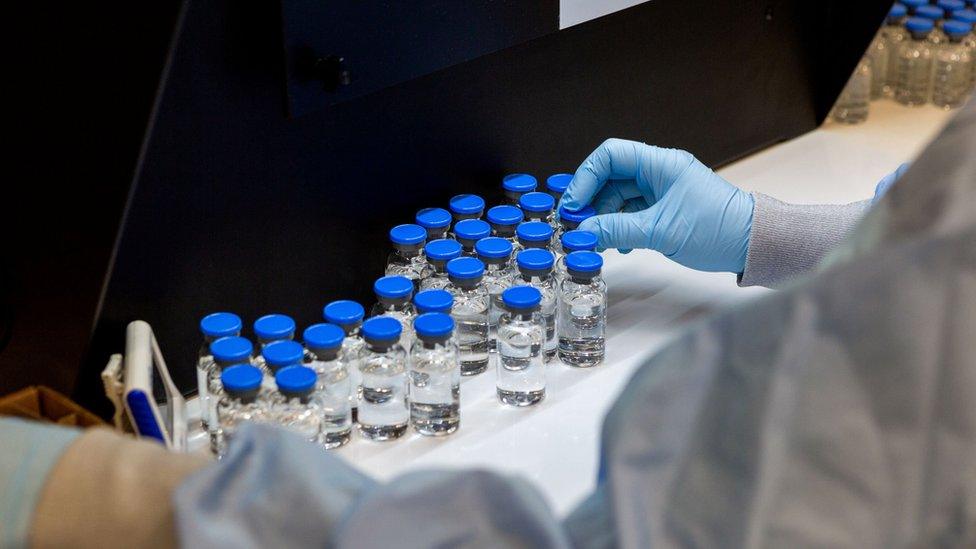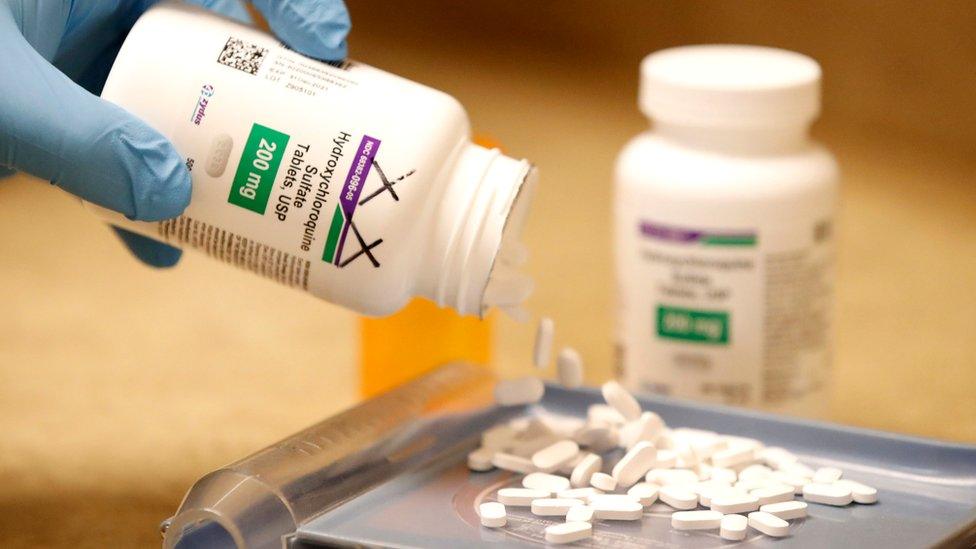Coronavirus: UK authorises anti-viral drug remdesivir
- Published
- comments

Experts warn remdesivir shouldn't be seen as a "magic bullet"
A drug treatment called remdesivir that appears to shorten recovery time for people with coronavirus is being made available on the NHS.
Health Secretary Matt Hancock said it was probably the biggest step forward in the treatment of coronavirus since the crisis began.
Remdesivir is an anti-viral medicine that has been used against Ebola.
UK regulators say there is enough evidence to approve its use in selected Covid-19 hospital patients.
For the time being and due to limited supplies, it will go to those most likely to benefit.
The US and Japan have already made similar urgent arrangements to provide early access to the medicine before they have a marketing agreement.
The drug is currently undergoing clinical trials around the world, including in the UK.
Early data suggests it can cut recovery time by about four days, external, but there is no evidence yet that it will save more lives.
It is not clear how much stock pharmaceutical company Gilead Sciences has available to treat UK patients.
Allocation of the intravenous drug will be based on the advice of doctors.
Minister for Innovation Lord Bethell said: "This shows fantastic progress. As we navigate this unprecedented period, we must be on the front foot of the latest medical advancements, while always ensuring patient safety remains a top priority.
"The latest, expert scientific advice is at the heart of every decision we make, and we will continue to monitor remdesivir's success in clinical trials across the country to ensure the best results for UK patients."
Dr Stephen Griffin from the University of Leeds Medical School, said it was perhaps the most promising anti-viral for coronavirus so far.
He said patients with the most severe disease would be likely to receive it first. "Whilst this is clearly the most ethically sound approach, it also means that we ought not to expect the drug to immediately act as a magic bullet.
"We can instead hope for improved recovery rates and a reduction in patient mortality, which we hope will benefit as many patients as possible."
Other drugs being investigated for coronavirus include those for malaria and HIV.
Testing of the malaria drug hydroxychloroquine has been halted in some trials because of safety fears.
The World Health Organization says the temporary suspension is a precaution, after a recent medical study found the drug might increase the risk of death and heart rhythm complications.
In the UK, the Recovery trial looking at using this drug in patients remains open, but another one, using it in frontline NHS staff to prevent rather than treat infections, has paused recruiting more volunteers.

A SIMPLE GUIDE: What are the symptoms?
ON FRONTLINE: The young doctors being asked to play god
REASON TO HOPE: The good that may come out of this crisis
AVOIDING CONTACT: The rules on self-isolation and exercise
HOPE AND LOSS: Your coronavirus stories

- Published25 May 2020

- Published2 May 2020
